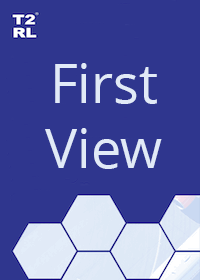

Download Full Report - English |

Download Full Report - Chinese 中文 |
Stimulus
Earnings release from Air Canada, 7 August 2009
Perspectives
Air Canada has today released its second quarter results and for the most part they make familiar reading to any observer of the airline industry in 2009. Operating losses and cuts in capacity are all too common these days. However, tucked away on page 16 of the Management Analysis paper is the following paragraph, which has significant implications for the airline IT services industry:
In the second quarter of 2009, Air Canada recorded an impairment charge of $67 million related to previously capitalized costs incurred pertaining to the development of a new reservation system, referred to as Polaris. The Corporation is currently working towards the implementation of certain components of the solution such as web and fare technology but has suspended activity relating to the implementation of the reservation system.
These 66 words confirm something that has been rumoured in the industry for some time. The ambitious plan announced in September 2006, to build an entirely new passenger services system for Air Canada based on ITA Software's technology has failed to deliver a full replacement for the current IBM mainframe passenger systems nearly 3 years later.
ITA has revolutionised the business of fare and availability search by applying advanced algorithms and massively parallel arrays of commodity hardware. It probably seemed a straightforward extension of this capability when they agreed to build a complete PSS for Air Canada. The Canadian airline has been at the forefront of new developments in airline marketing with the unbundling of attributes from its products to create fare families. Existing technology in both the airlines and the GDSs was unable to cope easily with the Air Canada approach and so a groundbreaking developer like ITA seemed the obvious choice to build a new generation of systems.
However, despite its pioneering of new approaches to selling and presenting inventory to the appropriate channels Air Canada remains an international network airline and a member of Star Alliance. As such it must continue to support all of the arcane and complex processes associated with interline partnerships, codesharing and ticket issuance, not to mention the regulatory requirements of many different countries. ITA's iconoclastic approach to "outdated" industry practices probably did not sit well with these needs.
The result is that Air Canada has spent perhaps $110 million of which it has now written off more than two thirds. It will probably achieve benefits in its online sales processes and will have a set of sophisticated APIs for third-party distribution but its back-end TPF mainframe system will have to continue for the time being at least. Possibly Air Canada will now revisit its decision to withdraw from the Star Alliance Common IT Platform (CITP) discussions with Amadeus. Amadeus would welcome them back with open arms, especially as it appears that the only part of the failed project that will deliver a return - E-Commerce - will involve quitting the Amadeus Internet Booking Engine.
ITA has been frustrated in its plan to extend its influence - and sales - into the fullfunction airline PSS. However all may not be lost for the software vendor as the Air Canada project at the very least has allowed ITA to create a fully capable Internet Booking Engine and some high performance integration capabilities for B2B (partners), and B2T (agents) services.
This will bring ITA software head to head with the likes of Sabre and Amadeus. Given its dominance of the fares and availability search market in North America and its increasing International deployment of those technologies, a full-blown Internet Booking Engine could turn out to be a very valuable asset for ITA.
Counter-intuitively it may come to depend on Amadeus and Sabre as they dominate the provision of IT services in the market, but watch for moves by Travelport. It has a close working relationship with ITA and understands that only by providing solutions to the largest airlines will it ensure it continues as a relevant player.
ITAÃ shareholders will undoubtedly be disappointed, but supplying the airline business can be very both disappointing and very rewarding. Compared with the customers they supply, technology companies do so much better. The shareholders will understand this and get used to the roller coaster ride. There will undoubtedly be other customers willing to take on the work started by Air Canada.

Download Summary Report Non subscribers

